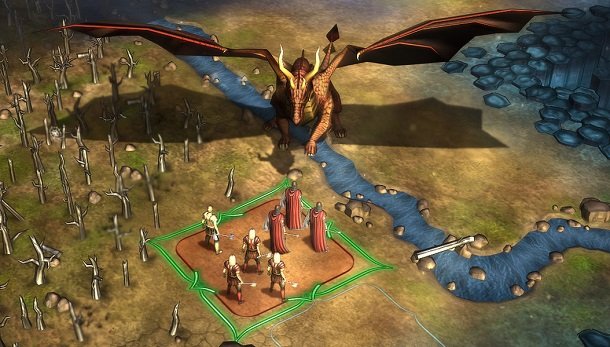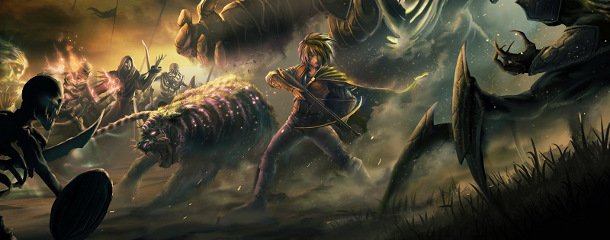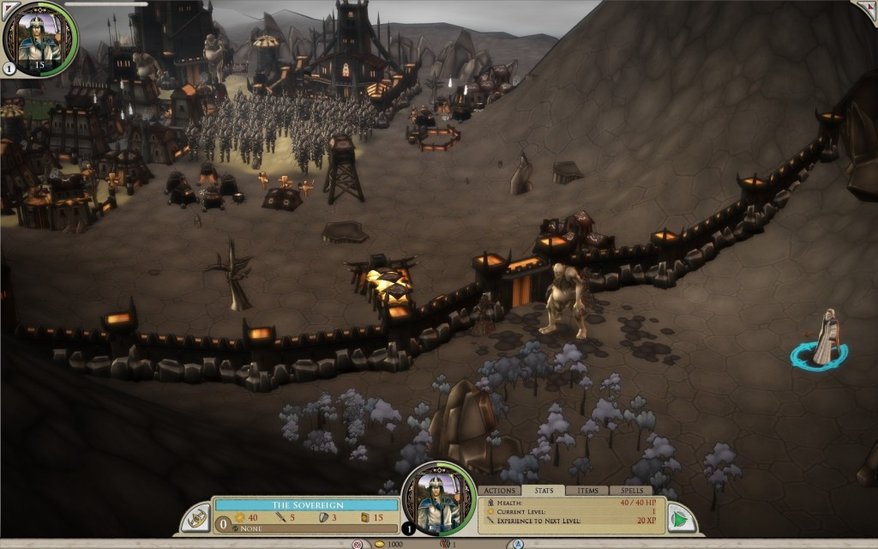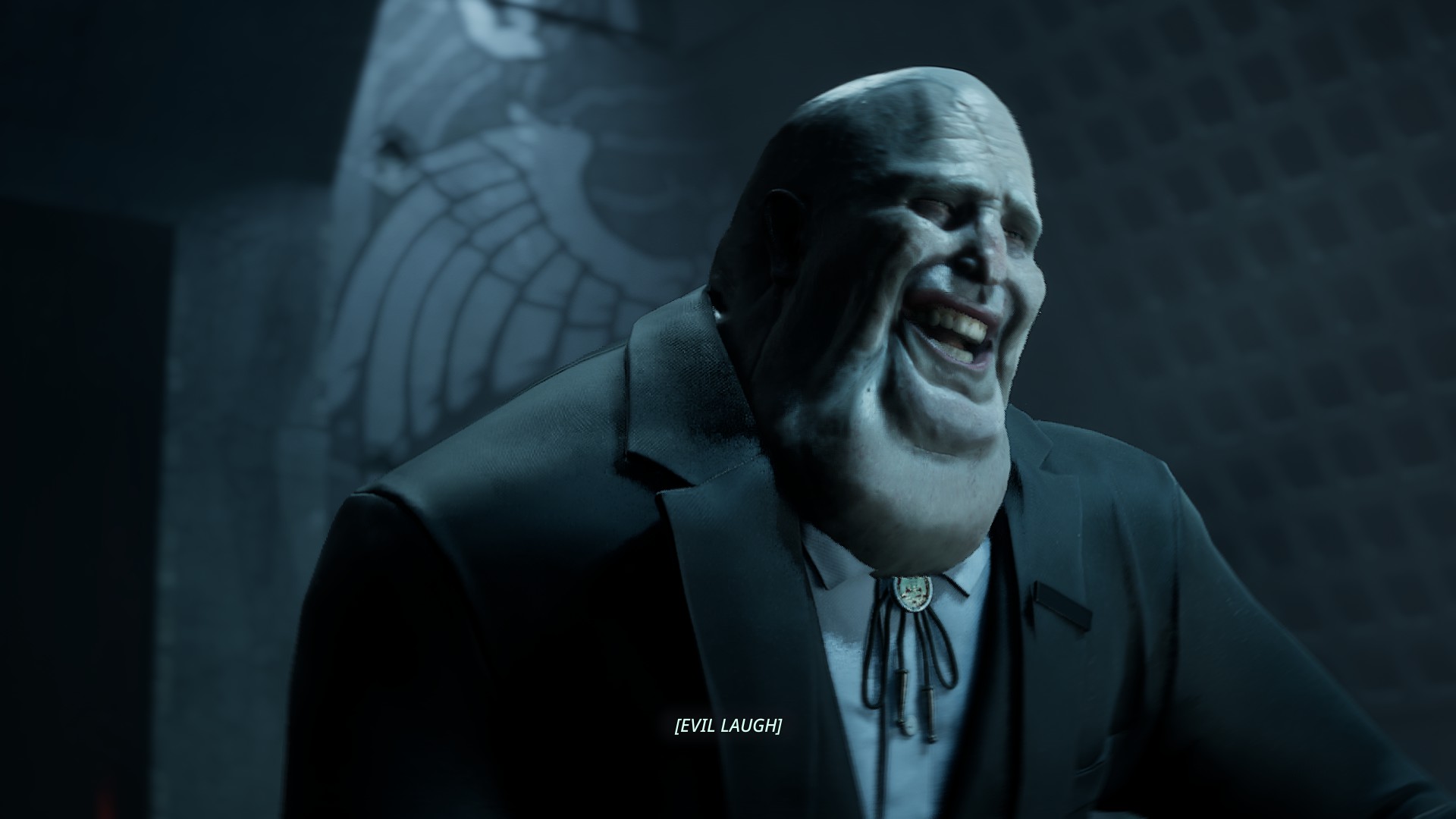
Stardock Entertainment has just announced that Fallen Enchantress producer/designer Derek Paxton, who will take over as vice president of games development and production. Stardock CEO Brad Wardell will remain with the company, shifting his focus toward the software and business side of the operation. We had a chance to chat with Derek about his time in the industry so far, what kinds of changes he'd like to see, and what's next for Stardock.
PC Gamer: How did you end up at Stardock?
Derek Paxton: I worked in business software. I worked for a company called Novell for 12 years. In my off hours, I was making video games. It's always been a passion of mine. Playing video games, making video games. I made a mod for Civilization IV called Fall From Heaven , which was a fantasy version of Civilization. I had a lot of fun creating it, and It did very well.
Stardock, meanwhile, has a long history of making great strategy games, and at the time they were working on Elemental: War of Magic . They finished that at about the same time I finished Fall From Heaven. I was looking around thinking what I would do next. I enjoyed what I was doing, but I liked my job too, and I'd never thought I could get into game development as a real career. There are a lot of people that want to be in game development and not nearly enough jobs for everybody.
"If I was ever going to go make games, this is the kind of place where I'd like to do it."
Stardock had just released Elemental, and it didn't go well. They wanted to change some things. It got Brad Wardell, the CEO, to step back and take a look at, “All right, what are we doing? How are we doing it? We want to keep making games, but if we're going to do that, let's do it right.” So he contacted me and said, “Hey, why don't you come up and see the studio and chat with us and see what we're doing?” I only lived a couple of hours from there, so I came out and hung out with the guys for a little bit and was amazed at what they were doing. The thing that really impressed me was, Elemental wasn't a great game. It didn't meet Stardock's quality bar, what they expected out of their games. And so Brad went to the community and said, “You know what? This game wasn't good enough. It isn't as good as it should be. It doesn't meet our quality standards. We believe that if you buy a game from Stardock, you should never regret that decision. So what I'm going to do is, the next two games in the series, you're going to get them for free. We'll make good on this and make sure you never regret a Stardock purchase.”
I was just floored by that. I don't know if that's a particular brand of craziness that would lead you to do that, but I was impressed by it. I said, “If I was ever going to go make games, this is the kind of place where I'd like to do it, where the company really does stand behind its games.” He offered me a job at the time, to be a producer and designer of those two games—the next games in the Elemental series—and to come in and help them make those and get those teams running. I jumped at the opportunity to come in and take what I'd been doing in my free time and had been my passion and do it as a career.

What have been your main responsibilities on the Fallen Enchantress games?
Keep up to date with the most important stories and the best deals, as picked by the PC Gamer team.
DP: On Fallen Enchantress and Legendary Heroes, I was the producer and designer, so everything from getting the design together… At Stardock, it isn't like, “This is what one guy says, so that's what we do.” It's a very collaborative environment. One of our sayings is that everybody is on the design team. But we still need a lead designer who can say, “I like your ideas. Those are all great ideas. But they aren't right for this game. We can't choose everything. This is the way we're going to go for this game.”
That was my responsibility. Working with Brad was fantastic, too, because he would pitch ideas, but at the end of the day he would still let me make that call. You can have two ideas and they're both good ideas, but only one is good for the particular bullseye we're trying to hit with that game. So I was responsible for the design side, making sure the design was good and the game was fun, and I was the producer as well, making sure that everybody understood what they were doing, why they were doing it, when they were going to do it, and what our final goal was.
With your new position, which of Brad's former responsibilities will you be taking over?
DP: As head of the game studio, my responsibility is to manage everybody here on the team. Brad wears a lot of hats. He's the CEO of the company. He's my boss. There are a lot of things that Stardock does. We'll be talking about more things we have coming down the pipe in the next few weeks. But for me it's taking care of the Stardock Entertainment side—anything to do with gaming. Hiring people, managing the various teams we have, and making sure that they're all taken care of so that Brad can focus on more big picture stuff.
What are the biggest changes that you would like to make with Stardock going forward?
DP: That's a good question. We have some things that we're going to be announcing here that I can't talk about yet… So that's a very sneaky way to ask the question. [laughs] I think that more of a focus on process… Brad's always loved games, so he hired a few friends and had a small team—six, seven people—and they made Galactic Civilizations together. It was a side project alongside what Stardock did. If you have a small team, you don't have to focus that much on communication or structure. The games didn't have dedicated producers or designers. The designer, typically Brad, was also the AI programmer who was doing UI design and a million other things.
The big change that I would like to make at Stardock is really organizing those roles. Once you have as many people as we have now, and as many different teams as we have now, making sure there's a producer devoted to that job, somebody scheduling things out and talking to all the various people and seeing what can be done to make their jobs easier, really, producers are what allow the wheels to turn at companies. And that we have dedicated designers, so the designer isn't doing that as a side job along with something else. Someone, every day, should be playing the game and focusing on, “Is this fun? Is there a better way that we can do it?” That would probably be the biggest change that I'll be making at Stardock.

Stardock has gone through ups and downs, in terms of publicity. What do you think the studio represents to the PC gaming community right now?
DP: I think that Stardock is in a unique position. We're bigger than you're typical indie. We're smaller than a triple-A. We are privately owned. We self-publish everything. We're not on store shelves. What that allows us to do is to create games that we love and that we're passionate about. They may be more niche-y. We see lots of games that we could make, and some of them would frankly make more money than the games that we make. But we love the kind of games that we make.
So I feel like we can appeal to an audience that isn't necessarily getting addressed in the marketplace, by and large. That's not to say that there's no other company out there like Stardock. There is. There's a wide variety. But I like that variety. I know where the business tends to go. You see the games that have $20 million, $50 million budgets. If you're going to make a game of that size, you have to sell 2 - 5 million copies to break even. If you're going to sell 2 million or 5 million copies of your game, there are certain things you have to do to appeal to that wide audience.
We make games with more reasonable budgets, and because of that, we don't have to sell millions of copies. We can sell 200,000 copies of our games, and that means that we don't have to go for that mainstream appeal. We can create more niche-y games that have more minutiae or details, the kind of games that we love. We fully understand that not everybody loves them, but we do think that there is an audience out there that loves that and is looking for it, and it isn't necessarily being addressed by some of the bigger releases out there. I don't think that we shouldn't have those bigger releases. I play games like that too. I just think we should have a mix. That's the beauty of the PC community.
Would you say that you're happy with where you stand in the PC community and how you're perceived right now, or are there other places you'd like to be in that sense?
DP: I'm really proud of what Stardock does. One of my biggest moments at Stardock was… Because we don't have an external publisher and because we're not publicly traded, we don't have quarterly revenue that we have to post and that affects our stock price. We don't need to be on store shelves at Target on November 12 or whatever date. We're able to take the time with our games that we feel we need in order to make a great game.
"If you do the game and you do it right, the business case will come afterward."
One of my hardest days at Stardock was when I was working on Fallen Enchantress. Brad had originally hired me to make those first two games after War of Magic, and there were a lot of things I wanted to do to make that final game. It was too big to do in one year. He'd spec'd out one year for the first game, one year for the second game, and then we were going to give this game away for free to lots of people. So I'd broken the total design into two pieces. One dealt with everything outside your empire, and then the other year, that second expansion, would be everything inside your empire—the economy changes and the faction differentiation and all that stuff.
We started working on that first piece and got it all in. We sent it out to our MVP community and they said, “Wow, we really like the new stuff, but it still feels a lot like War of Magic.” Because all the stuff inside your empire hadn't changed. I played it and realized, “You know what? Unfortunately, they're absolutely right.” So I went to Brad and said, “Hey, you know that game we're giving out for free, and then there's the second game we're giving out for free? I can't give it to you and have it be good enough in one year. I want to take two years for the first game, and then after that we're still going to need to make another game and give that out for free too.” And Brad said, “Go ahead and do it. That's fine. Just make a great game.”
It's fantastic. I love working at a place where making a great game is the goal. We've learned that lesson over and over again from GalCiv, which is a game that continues to sell incredibly well. If you do the game and you do it right, the business case will come afterward. It'll make up for itself. But if you make a bad game, you hit your release day, and then it just disappears off the face of the earth. I'm very proud of everything Stardock's done. Making hard decisions like that… They're not in the public view. Most people don't see that. They weren't in that meeting with Brad and me. But it does really impact and show in our products, I think.
Len Hafer is a freelancer and lifelong PC gamer with a specialty in strategy, RPGs, horror, and survival games. A chance encounter with Warcraft 2: Tides of Darkness changed her life forever. Today, her favorites include the grand strategy games from Paradox Interactive like Crusader Kings and Europa Universalis, and thought-provoking, story-rich RPGs like Persona 5 and Disco Elysium. She also loves history, hiking in the mountains of Colorado, and heavy metal music.

